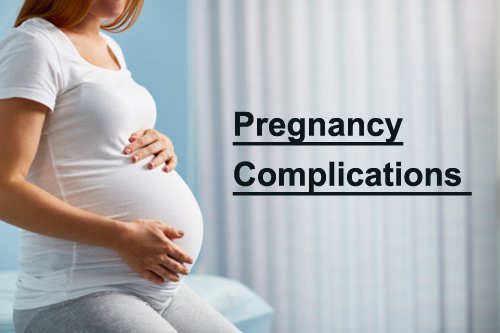Pregnancy Complications In Nagpur

pregnancies proceed without complications, and healthcare providers work to monitor and address any issues that may arise. Prenatal care, regular check-ups, and open communication with healthcare providers are essential for the early detection and management of pregnancy complications. Pregnant individuals should promptly report any concerns or symptoms to their healthcare team for appropriate evaluation and intervention.
common pregnancy complications
Gestational Diabetes: Elevated blood sugar levels during pregnancy, which can lead to complications for both the mother and the baby. Monitoring and managing blood sugar levels are crucial.
Preterm Birth: Delivery of the baby before 37 weeks of gestation. Preterm birth can result in health issues for the baby, as their organs may not be fully developed.
Miscarriage: The spontaneous loss of a pregnancy before 20 weeks. Miscarriages can occur for various reasons, often related to chromosomal abnormalities.
Ectopic Pregnancy: When a fertilized egg implants outside the uterus, usually in the fallopian tube. Ectopic pregnancies can be life-threatening and require prompt medical attention.
Placenta Previa: A condition where the placenta partially or completely covers the cervix, potentially leading to bleeding during pregnancy.
Placental Abruption: Premature separation of the placenta from the uterine wall, which can cause heavy bleeding and threaten the health of both the mother and the baby.
Intrauterine Growth Restriction (IUGR): Slowed fetal growth resulting in a smaller-than-expected baby. This can be caused by various factors, including maternal health issues or placental problems.
Gestational Hypertension: High blood pressure that develops during pregnancy but does not meet the criteria for preeclampsia. It requires monitoring and may progress to more severe hypertension.
Multiple Gestation (Twins, Triplets, etc.): Pregnancy with two or more fetuses, which may pose additional challenges and risks.
Hyperemesis Gravidarum: Severe nausea and vomiting during pregnancy that can lead to dehydration and nutritional deficiencies.
Rh Incompatibility: A condition where the mother’s Rh factor (a protein on red blood cells) is incompatible with that of the baby, which can lead to complications.
Postpartum Hemorrhage: Excessive bleeding following childbirth, which can be a medical emergency.
Cholestasis of Pregnancy: A liver disorder that can lead to itching and increased levels of bile acids in the blood, posing risks for the baby.
Cervical Insufficiency: Weakening of the cervix that may result in premature cervical dilation.
